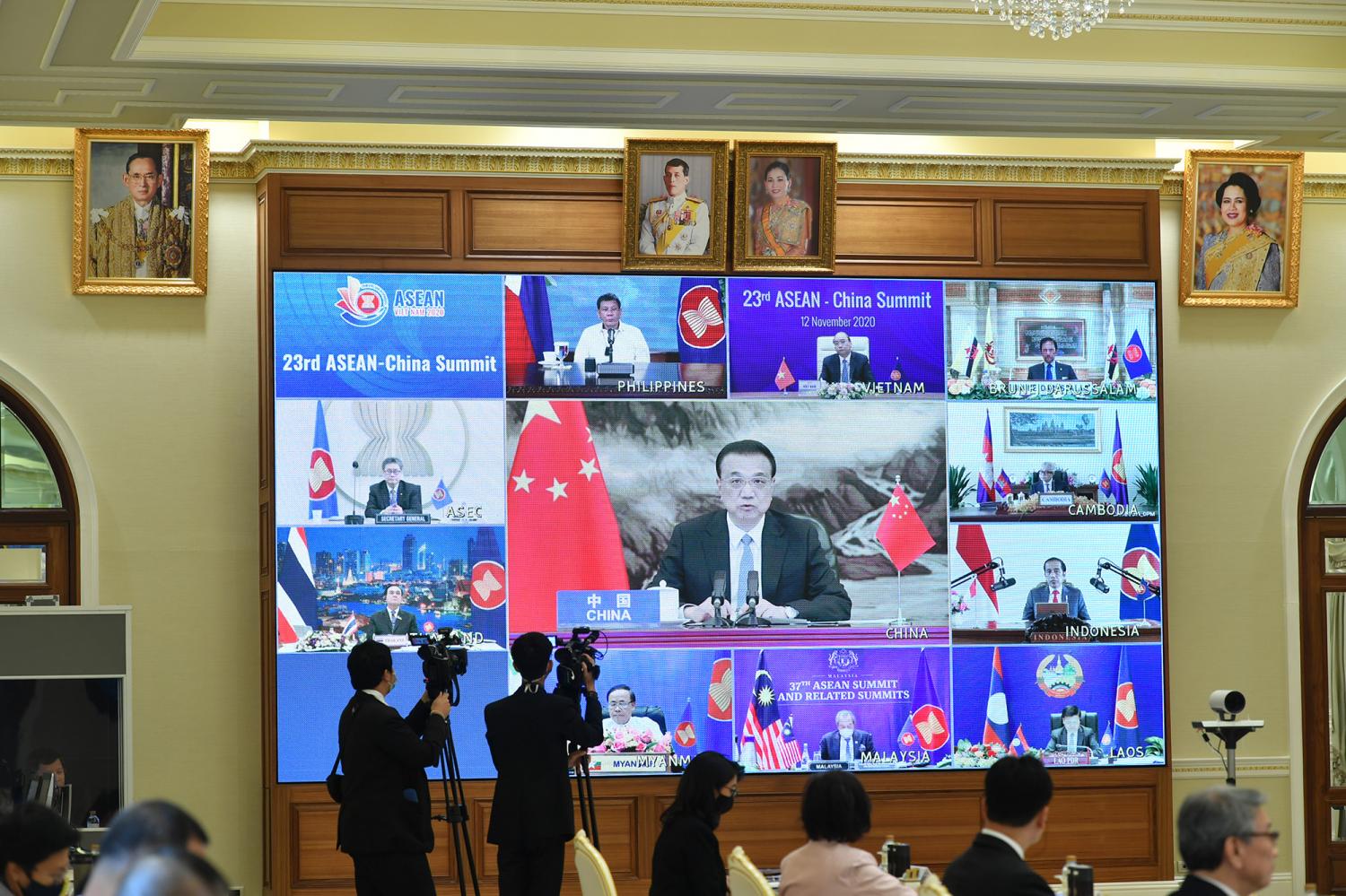
Fifteen Asia-Pacific nations including China aim to clinch the world's largest free-trade agreement this weekend, the culmination of Beijing's decade-long quest for greater economic integration with a region that encompasses nearly a third of the global gross domestic product.
The Regional Comprehensive Economic Partnership (RCEP), which includes 10 Asean members including Thailand and countries stretching from Japan to Australia and New Zealand, aims to reduce tariffs, strengthen supply chains with common rules of origin, and codify new e-commerce rules.
Its passage may disadvantage some US companies and other multinationals outside the zone, particularly after President Donald Trump withdrew from talks on a separate Asia-Pacific trade deal formerly known as the Trans-Pacific Partnership (TPP).
The RCEP signing is expected in a virtual session on Sunday, the last day of the 37th Asean Summit and related meetings chaired by Vietnam.
The Asean-US, Asean Plus Three and the East Asia summits are scheduled for tomorrow.
Following the withdrawal of India from RCEP negotiations last year, the other 15 nations sought to announce the agreement by the end of this week's Asean Summit, which Vietnam is hosting virtually.
Malaysia's Trade Minister Azmin Ali told reporters the deal would be signed on Sunday, calling it the culmination of "eight years of negotiating with blood, sweat and tears".
"China has pulled off a diplomatic coup in dragging RCEP over the line," said Shaun Roache, Asia-Pacific chief economist at S&P Global Ratings.
"While RCEP is shallow, at least compared to TPP, it is broad, covering many economies and goods, and this is a rarity in these more protectionist times."
The impact may extend beyond the region. The deal's advance illustrates how Mr Trump's move to withdraw from the TPP -- now known as the Comprehensive and Progressive Agreement for Trans-Pacific Partnership -- has diminished America's ability to counterbalance China's economic clout with its neighbours.
That challenge may soon shift to President-elect Joe Biden if, as expected, he's officially certified the winner of the Nov 3 election.
Still, many countries participating in the trade deal are also wary of becoming too economically dependent on China.
Japan is among countries that have looked to reassess supply chains in China, and Beijing's move to effectively ban key Australian exports after its government called for an investigation into the origin of the coronavirus underscored the risk of relying too much on the world's second-biggest economy.
Meanwhile, several sticking points remained among RCEP nations just days before the signing. Vietnam's Deputy Foreign Minister Nguyen Quoc Dzung said during a briefing on Monday the signing will depend on whether "internal procedures" of the participating nations are completed.
Prime Minister and Defence Minister Prayut Chan-o-cha on Thursday attended via a teleconference the opening ceremony and the plenary session of the 37th Asean Summit and related summits at Government House.
He said the Covid-19 pandemic remains a critical task before Asean member states, and underscored the importance of Asean's strength and solidarity in leading the region out of this crisis.
Participating in the meeting were leaders of the 10 Asean member states and China's Prime Minister Li Keqiang.
In his statement, Mr Li cited the saying, "A friend in need is a friend indeed", to commend the close bonds between Asean and China over the past 30 years.